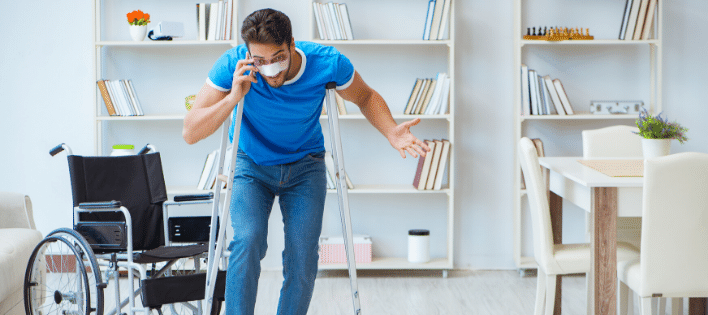
Slip and Fall Compensation in Ontario
When you suffer an injury in a slip and fall accident, you could be entitled to financial compensation if it occurs on the property of another person. Whether you are at another person’s private residence or on the premises of a business, you might have a claim for compensation if you take a fall. These claims can be viable if the property owner or manager failed to reasonably address the hazard that caused your injury.
From a spilled drink to broken banisters, any dangerous condition on a property could lead to a claim under the right circumstances. But proving liability is only part of the equation. To obtain financial recovery, you will also need to establish the amount of compensation for slip and fall injuries you are entitled to. Below, we look at four factors that determine your slip and fall compensation amounts.
4 Important Factors
Curious about how much compensation for slip and fall injuries you might be entitled to? Every case is different, and there is no certain way to identify the amount of compensation at your disposal. That said, slip and fall compensation generally depends on four important factors. You will need to consider all of these factors together when considering the value of your slip and fall claim.
1. Your Injuries
The driving factor in evaluating your potential slip and fall claim is the severity of your injuries. By and large, the value of your injury settlement will depend on how severe your injuries were.
For starters, severe injuries are more likely to lead to extensive medical treatment. The cost of this treatment and the physical therapy that comes with it could be extensive.
The mental hardships you face from a severe injury could also drive the value of your claim. This includes your pain and suffering, mental anguish, loss of consortium, and time away from work that results from your injury.
2. Whether Your Property Damage
Property damage claims are not as common in slip and fall accidents as they are with vehicle negligence cases. That said, it is possible that your personal property could be damaged in a fall. For example, if your expensive watch was damaged in the fall, you could pursue compensation to repair or replace it.
3. Your Efforts to Mitigate Harm
Not all factors that go into your claim will increase the amount of your damage. As a plaintiff, you also have duties and responsibilities. In some cases, your actions could result in your claim being diminished.
For example, you have a duty to mitigate your losses following an injury. Even if a negligent property owner is responsible for your fall, it is your duty to obtain necessary medical treatment and follow your doctor’s orders. If you ignore medical advice and refuse to take steps to address your injuries, you may not recover compensation if they worsen.
While the failure to mitigate your damages might not cost you the entire value of your claim, it could substantially reduce your recovery depending on the steps you failed to take.
4. Contributory Negligence
The final factor that impacts slip and fall compensation is contributory negligence. In British Columbia, a plaintiff has the right to seek monetary compensation even when they share in the fault of causing the accident. However, the court will reduce the amount of damages awarded in proportion to your degree of fault. This means if your own negligence played a major role in your fall, it could limit the compensation you are entitled to.
There are countless ways your own negligence could have led to a slip and fall accident. This includes anything from wearing inappropriate footwear to entering an area of the property marked “no trespass.”
Find Help
While these four factors might give you some insight into how to value a claim, the reality is that no one can tell you for sure. Only a jury will ultimately decide the damages you are entitled to if you take your case to trial. That said, an experienced lawyer might provide valuable insight after reviewing your case.
Disclaimer: The content of this article is a general guideline made available for educational purposes only and is not intended to be used as legal advice for the reader's specific situation nor in general. By reading our blog and website content, the reader acknowledges the above and understands there is no lawyer-client relationship created between you and Himelfarb Proszanski through this content. To get specific legal advice, we encourage you to book a free consultation with one of our lawyers to clarify the legal aspects of your situation.

